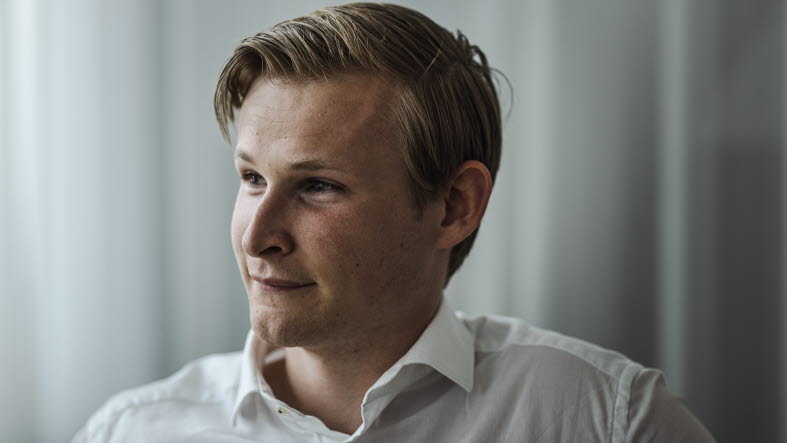When working in a critical area, you must always think ahead

For the past three years, Simon Elker has worked in SEB’s IAM team within DSI Hosting & Integration. In his role as Engineer and Product Owner, he is involved in operating and developing the bank’s IAM and API platforms. In this article, he shares his experiences from working in such a critical area and explains why he has chosen SEB as his employer.
– Working with IT has always intrigued me, so at university I chose to study Computer Science, focusing on business systems and service design. However, the courses I enjoyed the most were related to security, and I have always found it exciting to work in an area where things are constantly happening. It was mainly this interest that led me to apply for SEB’s tech programme and the role of Engineer in the Identity and Access Management (IAM) team. Today, I’ve been with the team for three years, and about a year ago I also took on the role of Product Owner, which includes more responsibility in regards to operations and planning.
What does the IAM team do?
– IAM is an infrastructure team that works with operating login platforms and API Gateway, both externally and internally. We are a small team consisting of four people, and our work is very diverse. It may sound like a cliché, but there are no typical days. Sometimes we have meeting days where we focus on planning and collaborations, other times we work on the production environment, and some days are more technically oriented. However, I’d say that the majority of our work revolves around operational commitments as they always take precedence over anything else. If our platforms were to go down, no one would be able to log in, our APIs would stop working, and synchronisation with third parties would halt. Our work affects a large number of people and companies, so if something doesn’t work, many people become dissatisfied very quickly.
What is it like to work in such a critical area?
– It’s really exciting! We work with different types of preparedness, which for example means that there’s always at least one person in the team available at all times, in case something happens. If an incident were to occur, you have to drop everything and can’t leave until the problem is resolved. Of course, it can be a bit nerve-wracking and stressful at times, but it also becomes a part of the job that is very thrilling. It motivates you to always do your best and never settle for anything less. Also, the rest of the team is quite senior and have been with the bank for a longer time. This means that I receive a lot of support and always have someone to turn to with questions.
What types of technologies do you work with?
– When it comes to technology, we work with Google Cloud, which the bank is increasingly moving towards. We also work with GitHub Actions for our CI/CD pipelines, which is very convenient. Additionally, we work a lot with OpenShift, DevOps framework, Kubernetes and Infrastructure as Code (IaC). In general, we aim for as much automation as possible and use the most common technologies, which not everyone might think. Some have the perception that working at a bank means clicking in a grey interface all day, but that’s really not the case. Even though, as a bank, we always need to be cautious and thorough with what we do, we still work very innovatively. There are always new technologies and threats emerging, so our tasks never become boring. For SEB, it means we can never stop developing and thinking ahead. And I find that very motivating!
